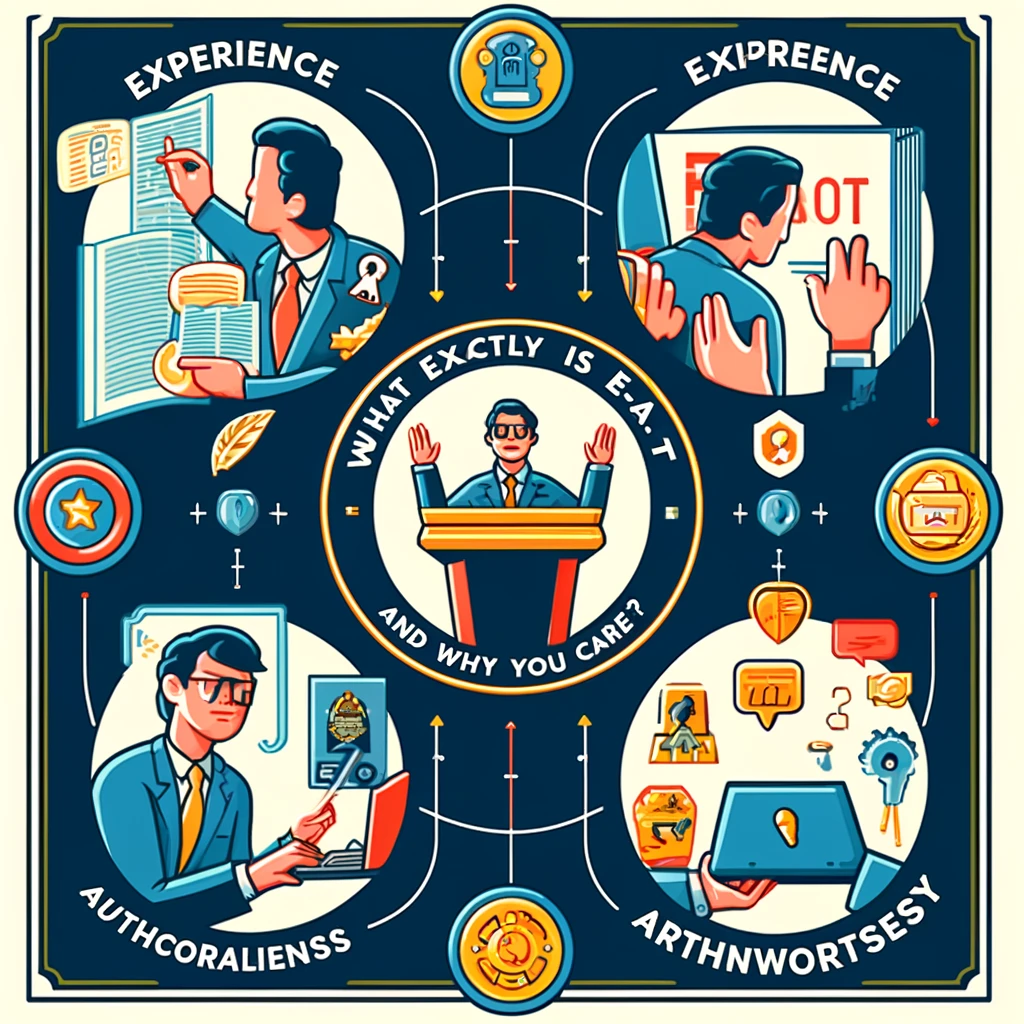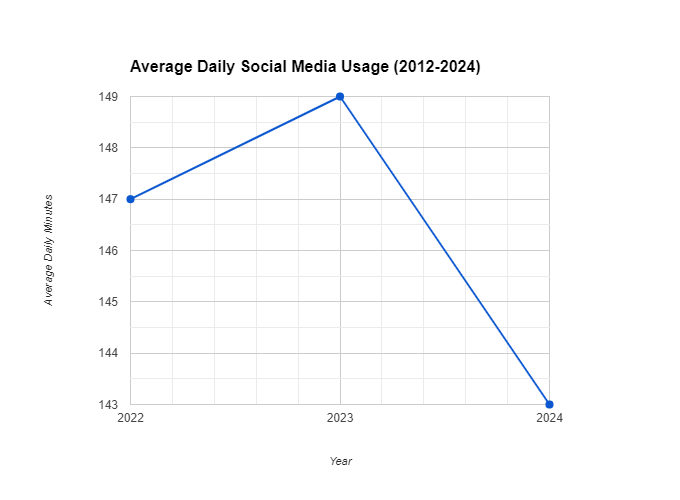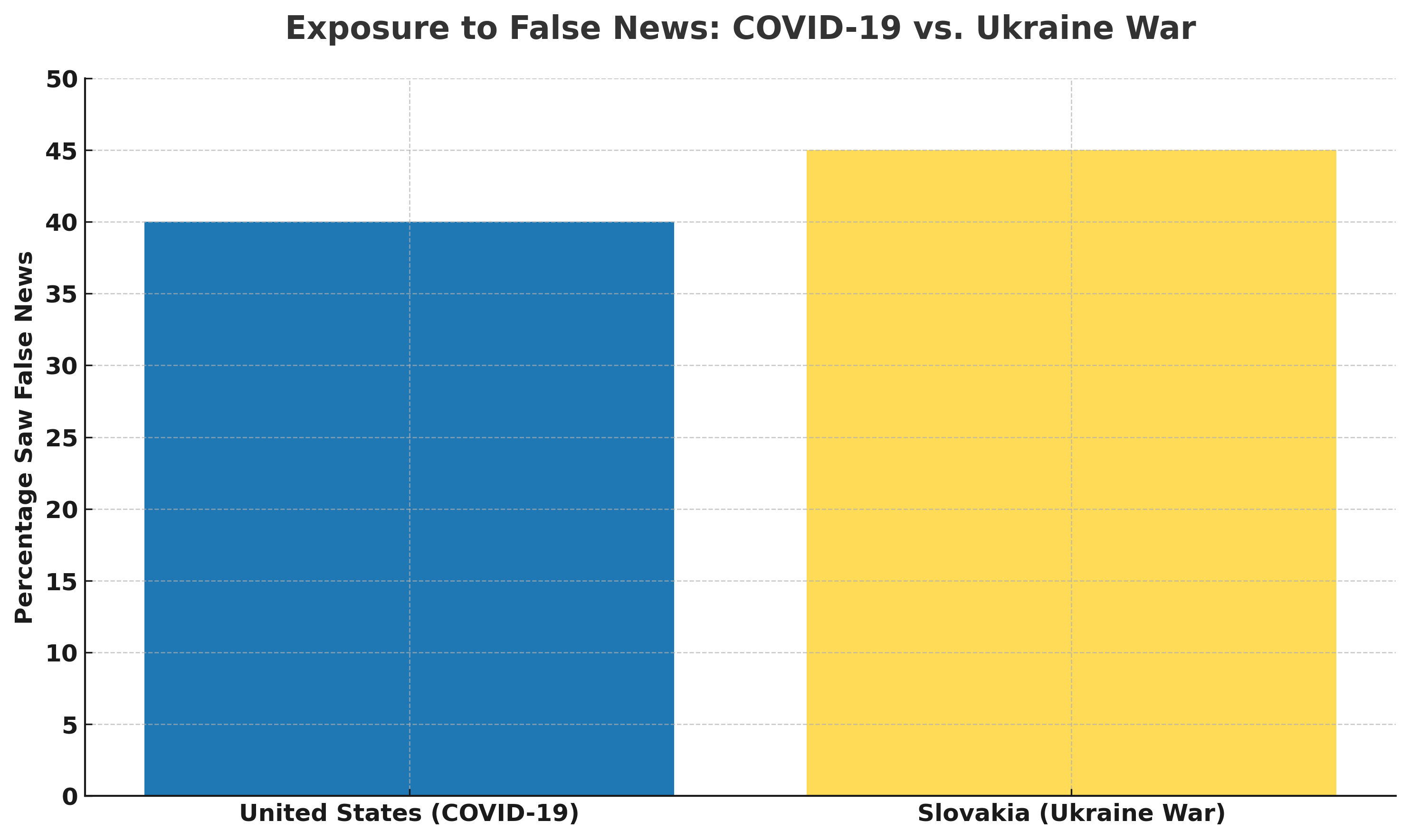
What exactly is E-E-A-T, and why should you care
Have you ever searched for something online and ended up in a labyrinth of questionable information? We've all been there. Thankfully, Google strives to connect users with trustworthy and reliable sources. That's where E-E-A-T comes in – a concept that might sound fancy, but it's all about ensuring you, the searcher, find the best possible information.
So, what exactly is E-E-A-T, and why should you care? Buckle up, because we're diving deep into this Google secret sauce and how it impacts what you see online.
The spread of fake news is becoming a public and global concern. Fake news spreads “significantly farther, faster, deeper, and more broadly than the truth.
A study published on nature.com about how folks in Germany and the UK spot and share fake news is pretty fascinating. They took a deep dive through big surveys in both countries, aiming to figure out what makes people good (or not so good) at spotting fake news and whether they tend to pass it along on purpose or by accident.
One key takeaway? Most of the time, sharing fake news isn't a deliberate choice—it happens by accident. And guess what? It turns out older guys with higher incomes and a lean toward the political left are the champs at calling out fake news. On the flip side, the younger crowd, especially in the UK, might share bogus stories on purpose more often.
But here's a twist: as people get older, they're less likely to share fake news accidentally, and this accidental share-fest is more common among folks leaning to the right. Oh, and those who usually share fake news by mistake? They're also the ones more likely to own up to having shared fake news at some point.
So, it seems like people have a pretty good sense of whether they can spot fake news. Those accidental sharers? They knew they were more likely to get duped. Quite the insight, right?

Nonetheless, there isn't a single, definitive statistic on the exact number of users who fall for fake news or incorrect information generated by AI. Here's why:
Difficulty in Tracking: It's challenging to definitively track how many users are truly "fooled" by AI-generated content. People might share or engage with misleading information without necessarily believing it's entirely true.
Evolving Landscape: AI-generated content is a relatively new phenomenon, and research on its impact is ongoing. Statistics might not capture the full picture, as AI techniques and user behavior are constantly evolving.
Here's what we can take away:
* A significant number of users are susceptible to fake news, regardless of its source.
* AI-generated content poses a new challenge, as it can be highly realistic and difficult to detect.
* 70% of participants had difficulty distinguishing real from fabricated news stories.
* False information travelled six times faster than truthful content on Twitter.
E-E-A-T: A Breakdown of the Alphabet Soup
E-E-A-T stands for Experience, Expertise, Authoritativeness, and Trustworthiness. It's a framework Google uses in its Search Quality Evaluator Guidelines (fancy term for a handbook that helps real people assess search results). These guidelines aren't direct ranking factors, but they influence how Google understands the credibility of a website and its content.
Let's break down each element of E-E-A-T:
Experience: Google, in a 2022 update, added this layer to acknowledge that valuable insights can come from real-world experience, not just academic credentials. So, a seasoned mechanic's blog on car repairs might hold just as much weight as a mechanic with a Ph.D.
Expertise: This refers to the author's knowledge and understanding of the topic. Google wants to see content created by people who truly know their stuff.
Authoritativeness: Here, Google considers how recognized the author or website is within their field. Think citations from other reputable sources, awards, or industry mentions.
Trustworthiness: This boils down to Google's perception of whether the content is honest, reliable, and free from bias.
Why is E-E-A-T Important?
Imagine you're researching healthy recipes. You wouldn't want to follow advice from a random blog, right? You'd seek information from a registered dietician or a website known for its accuracy in health content. That's the power of E-E-A-T – it helps Google prioritize content that users can confidently rely on.
Here's a statistic to emphasize its importance: A 2021 survey by Edelman found that 86% of global consumers say trust in a brand is a significant factor in their purchasing decisions. This trust factor translates to the online world as well. Users are more likely to engage with and click on websites that demonstrate strong E-E-A-T.
A Survey conducted in early 2023 and published on statista.com (https://www.statista.com/topics/6341/fake-news-worldwide/#topicOverview) found that more than 40 percent of news consumers in the United States were exposed to misleading information regarding COVID-19. The study also found that among all the countries surveyed, Slovakia had the highest percentage, 45 percent, of individuals who encountered false news about the conflict in neighboring Ukraine.

E-E-A-T and YMYL: A Match Made in Google Heaven
Imagine searching for medical advice online and encountering a website with questionable information. Scary, right? That's where YMYL (Your Money or Your Life) comes in. These are websites that deal with topics that could significantly impact your health, finances, or safety.
Here's why E-E-A-T and YMYL are a perfect match:
Higher Stakes, Higher Scrutiny: For YMYL sites, Google applies a stricter E-E-A-T evaluation. Inaccurate information on legal matters, financial advice, or medical care could have serious consequences. Google prioritizes showing users the most credible sources possible to minimize risk.
Building User Confidence: When users search for YMYL topics, they're often in a vulnerable state, seeking information to make important decisions. E-E-A-T helps Google ensure those users encounter websites they can confidently trust.
Think of it this way: When you have a serious illness, you wouldn't rely on a random blog for treatment advice. You'd seek out a licensed physician with a proven track record. In the same vein, Google strives to connect users with YMYL content that meets the same standard of expertise and trustworthiness.
Here are some specific examples of YMYL websites:
Health: Websites offering medical information, diagnosis advice, or treatment recommendations.
Finance: Websites providing financial advice, investment tips, or tax information.
Legal: Websites offering legal guidance, information on legal procedures, or self-help legal resources.
If your website falls under the YMYL umbrella, focus on building a strong E-E-A-T foundation. Demonstrate the expertise of your authors, showcase the trustworthiness of your content, and establish yourself as a reliable source in your field. By doing so, you'll not only improve your ranking potential but also contribute to a more informed and secure online environment.
Building Your E-E-A-T Muscle: Tips for Creators
- Establish Your Expertise: Show You Know Your Stuff
Go beyond simply stating your knowledge. Here's how to truly establish yourself as an expert in Google's eyes:
Demonstrate Deep Understanding: Don't just skim the surface. Dive deep into the topic, showcasing your comprehensive knowledge through well-researched content.
Data & Research as Your Weapons: Back up your claims with credible sources. Statistics, studies, and links to reputable websites add weight to your content and signal expertise.
Become a Citation Machine: Don't be afraid to cite other experts in the field. This shows you're familiar with the broader conversation and strengthens your credibility by association.
- Craft Authoritative Content: Go Beyond the Basics
Your content should be the go-to source for anyone seeking information on the topic. Here's how to achieve that level of authority:
In-Depth Exploration: Strive for comprehensive content that leaves no stone unturned. Answer potential user questions proactively and provide valuable insights.
Unique Voice & Fresh Perspectives: Don't just regurgitate information. Offer your own analysis, interpretations, and original ideas to set your content apart.
Think "Ultimate Guide": Aim to create the most informative and valuable resource available on your chosen subject. This establishes you as a thought leader and a trusted source.
- Build Trustworthiness: Transparency is Key
Earning user trust is essential for strong E-E-A-T. Here are some ways to build that trust:
Be Transparent About Yourself: If you have relevant qualifications or experience, share them! This helps users understand your background and expertise.
Clear & Concise Communication: Use language that's easy to understand and avoid jargon or overly technical terms. Clarity builds trust.
Factual Accuracy is Paramount: Double-check your information and avoid making claims you can't support. Be honest about any limitations in your knowledge.
Address Potential Biases: If you have a personal connection to the topic, disclose it openly. This transparency fosters trust and allows users to make informed decisions.
Bonus Tip: Optimize for User Experience
Remember, your website is a reflection of you. Here's how to make it a positive user experience:
Mobile-Friendly Design: Ensure your website is easy to navigate and read on all devices, especially mobile phones (a majority of web traffic these days!).
Clear & Organized Structure: Make it easy for users to find the information they need. Logical navigation and clear headings are key.
Fight the Clickbait Monster: Avoid sensational headlines or misleading content that doesn't deliver on its promise. Focus on providing genuine value.
By following these tips and focusing on creating high-quality, trustworthy content, you can build strong E-E-A-T and establish yourself as a trusted voice in your field. Remember, it's a journey, so keep creating, keep learning, and keep building that E-E-A-T muscle!
Some extra information which you may find helpful:
- How often should new content be generated and published?
- What are Google Penalties, and how do you recover from them?
E-E-A-T: A Tool for a More Informed Web
By prioritizing E-E-A-T, Google aims to create a more reliable and trustworthy online experience for everyone. As content creators, understanding this framework empowers you to contribute to a healthier digital landscape. Here's how:
Combating Misinformation: In today's information age, false or misleading content can spread rapidly. By focusing on E-E-A-T, you create content grounded in expertise and factual accuracy. This helps combat the spread of misinformation and ensures users encounter reliable sources.
Empowering Users: When users can trust the information they find online, they're better equipped to make informed decisions. Whether it's choosing a financial advisor, researching a medical condition, or simply learning a new skill, E-E-A-T empowers users to navigate the web with confidence.
Promoting a Culture of Quality: As more creators prioritize E-E-A-T, the overall quality of content online improves. This fosters a culture of excellence where users can expect in-depth, informative content from a variety of reliable sources.
Enhance your content's expertise, authority, and trustworthiness (E.A.T) by utilizing free online video creation platforms. Demonstrate your knowledge and proficiency in the subject area using these cost-free tools. Create engaging videos that showcase your expertise and establish your credibility without incurring expenses.
Ultimately, E-E-A-T isn't just about ranking higher in search results; it's about contributing to a more informed and empowered online experience for everyone. So, the next time you create content, remember the power you hold. By focusing on E-E-A-T, you can become a trusted voice in your field and play a role in shaping a more reliable and trustworthy web for all.
If you need to muscle up your EETA with your content, ask Unlimited Exposure Online. Why?
Over the past 27 years, Unlimited Online Exposure, a cutting-edge digital marketing company specializing in designing eCommerce websites, has established an outstanding reputation by creating more than 1400 websites.
We utilize our vast knowledge and successful track record to enhance your online presence. Our strategies and techniques for search engine optimization (SEO) are customized to align with your unique marketing objectives in Toronto. So, if you're looking for a "local SEO marketing agency," feel free to contact us without hesitation. We would be delighted to arrange a meeting with you where we can fully understand your preferences and goals and deliver tangible results for your business. Whether you are satisfied with our comprehensive offerings or have specific requirements, we are fully prepared to adapt our services to fulfill your needs.
